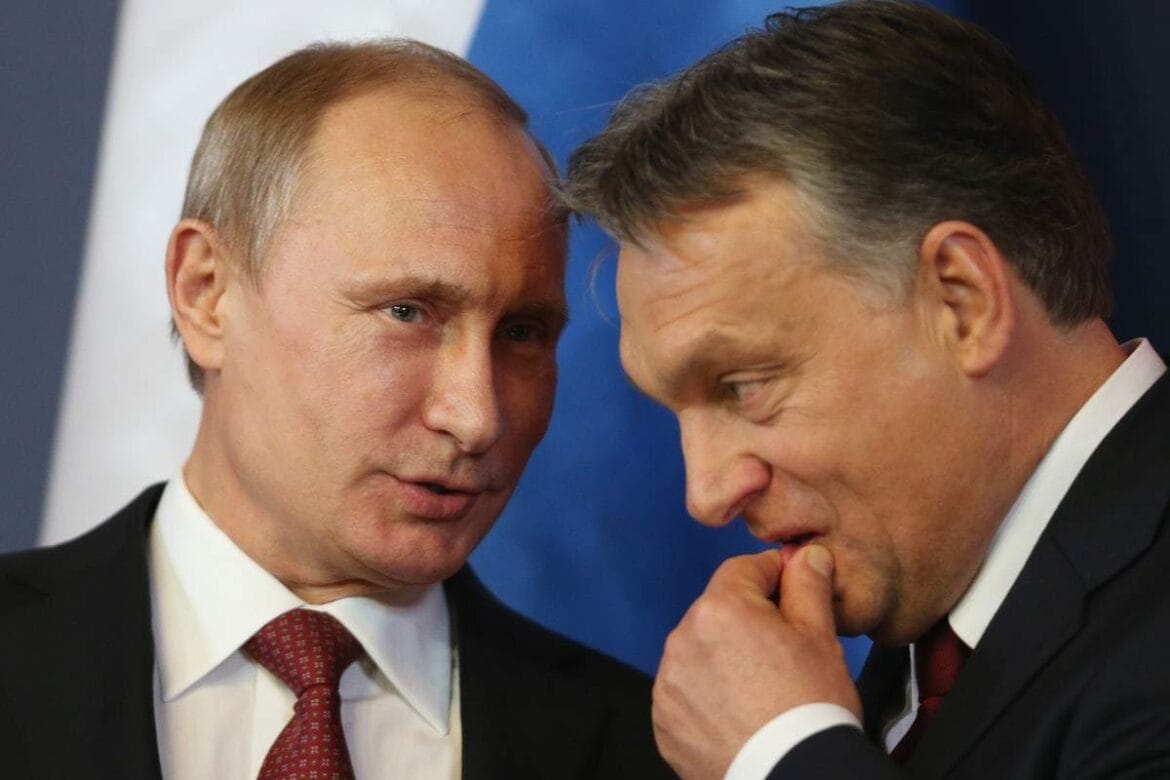Hungarian Prime Minister Viktor Orbán’s government has launched a new round of so-called “national consultations” on tax policy, linking the exercise to European Union debates on long-term financial support for Ukraine and using recent corruption allegations in Kyiv to argue against increased EU payments.
Households across Hungary have received a government letter inviting them to participate in the consultation, which the cabinet presents as a nationwide survey on possible tax rises. In the text, the government claims that higher Hungarian taxes are being pushed by Brussels to fund Ukraine and “the war”, and frames the issue as a direct threat to Hungarian taxpayers.
The letter goes further, citing what it calls an “unprecedented corruption scandal” in Ukraine. According to the wording sent to citizens, a “Ukrainian military mafia”, allegedly operating at the highest levels of the Ukrainian state, has misappropriated billions of euros in European funds. As an illustration of this claim, the letter refers to a “palace” in Kyiv belonging to a suspect now believed to have fled the country, where investigators are said to have found a toilet “made of gold”.
The language in the letter mirrors recent public remarks by Orbán and his allies, who have seized on an ongoing Ukrainian corruption probe involving senior figures linked to President Volodymyr Zelenskyy and a Kyiv luxury property featuring a gold-plated bathroom. Hungarian officials have used the scandal to argue that EU institutions should suspend new funding for Ukraine until a full audit of previous disbursements is completed. Orbán has accused what he describes as a “war mafia” in Ukraine of diverting European taxpayers’ money, criticising European Commission President Ursula von der Leyen for asking member states to commit additional funds rather than first tightening oversight.
However, the questionnaire accompanying the consultation does not in fact contain any questions explicitly mentioning Ukraine, corruption in Kyiv or a “Ukrainian military mafia”. Instead, the survey attributes any potential future tax hikes to “Brussels”, which is presented as seeking more money to finance migrants and other EU-level policies. According to the reported wording, the only passing reference to Russia’s war against Ukraine comes in a question asking whether Hungary should buy oil and gas from more expensive non-Russian sources “instead of cheap Russian energy”, even if this increases household utility bills.
In practice, the consultation focuses on long-standing themes of the Orbán government’s domestic messaging: migration, energy prices and perceived overreach by EU institutions. The linkage to Ukraine and the current corruption scandal appears primarily in the covering letter, rather than in the questions that respondents are asked to answer.
The launch of the new questionnaire comes as EU governments argue over the scale, duration and financing of further support for Ukraine. Brussels is exploring a multi-year package combining EU budget resources, fresh national contributions and windfall revenues from frozen Russian state assets. Several member states, including Hungary, have raised concerns or sought to attach conditions, with Budapest positioning itself as the most outspoken critic of additional aid commitments.
“National consultations” have become a regular feature of Hungarian politics under Orbán. The government prints and mails questionnaires to voters on contentious issues and then presents the aggregated answers as an expression of the popular will. The exercises are not regulated as formal referendums, there is no independent verification of turnout or counting, and respondents can submit multiple answers online. Opposition parties and civil society groups in Hungary, as well as some external observers, have long argued that the consultations are primarily a political communication tool, allowing the ruling Fidesz party to frame issues on its own terms.
Despite their non-binding status, the government frequently cites the results in EU debates. In June 2025, Budapest announced the outcome of a consultation branded “Voks 2025” on Ukraine’s accession to the EU. According to the official figures released by Orbán, 95% of participants voted against opening membership talks with Kyiv, a result secured on a turnout of around two million in a country of 9.6 million people. The prime minister has since used that finding to claim a popular mandate for maintaining Hungary’s veto over the start of accession negotiations.
The new consultation on taxes appears designed to perform a similar function in the parallel dispute over Ukraine funding, allowing the government to argue that any future compromise in Brussels would run counter to the expressed will of Hungarian citizens. It also provides another platform for Budapest to repeat its charge that European leaders are asking Hungarians to pay higher taxes in order to finance both migration and what Orbán now regularly calls Ukraine’s “war mafia”.
In Kyiv, the authorities insist that the exposure of corruption networks demonstrates that Ukraine’s anti-corruption bodies are operating effectively even during wartime, and that those implicated in recent scandals will be prosecuted. Ukrainian officials argue that continued Western financial support, combined with pressure for reform, remains essential both for the country’s defence and for its eventual accession to the EU.


